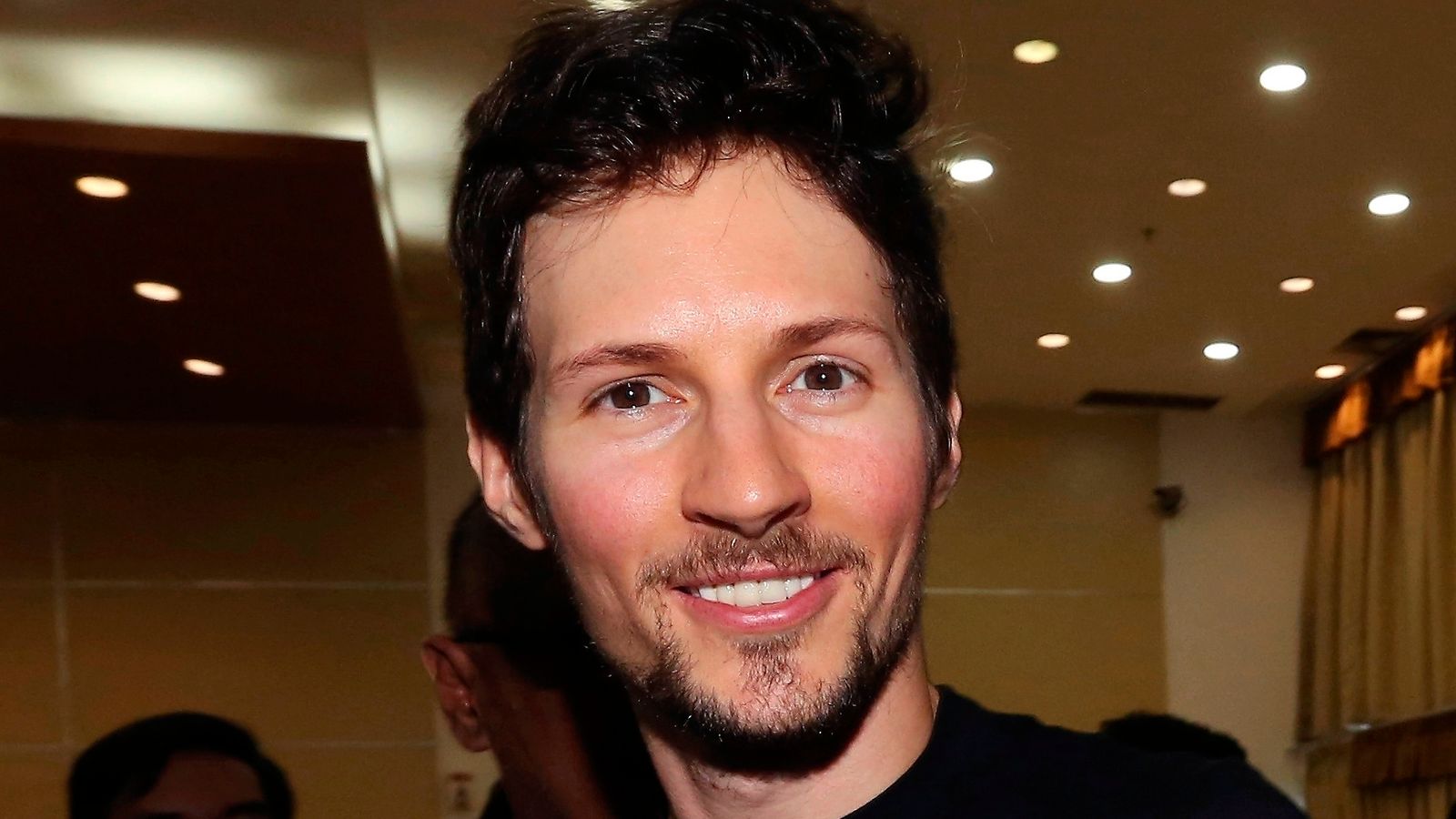


Telegram, one of the world’s biggest social media networks, “will probably hit one billion active monthly users within the year”, according to the app’s billionaire founder Pavel Durov.
“Telegram is spreading like forest fire,” said Mr Durov to US commentator Tucker Carlson on Tuesday.
So what is Telegram and why is it suddenly so popular?
At its core, Telegram looks quite familiar. It is an encrypted messaging service where users can privately message, as well post to a feed, similar to other platforms.
Mr Durov said he came up with the idea of an encrypted messaging app as a way to communicate while in Russia. His younger brother, Nikolai, designed the encryption.
He left the country in 2014 after facing pressure to censor the social media network he was running at the time, called VK.
Telegram, which now has 900 million users, is particularly popular in Russia and former Soviet Union countries. It is ranked as one of the major social media platforms around the world, after Facebook, YouTube, WhatsApp, Instagram, TikTok and WeChat.
It was blocked in Russia in 2018 after the company refused to hand over encryption data but two years later, Telegram was reinstated after the ban failed to stop people using it.
Communications watchdog Roskomnadzor said it had unblocked it because the app’s Russian founder, Mr Durov, was prepared to cooperate in combating terrorism and extremism on the platform, but that was questioned.
The app was so widely used during the ban, government departments such as the Russian Foreign Ministry and national coronavirus taskforce had official channels on Telegram.
Read more from Sky News:
Black hole found ‘lurking undetected’ close to Earth
Schools won’t use Meta Quest VR unless teachers have ‘complete control’
After Russia invaded Ukraine in 2022, users flocked to Telegram for its unfiltered and sometimes misleading content about the war.
At the beginning of the war, the Kremlin brought in a new law that meant people who spread “fake” information about Russia’s armed forces could be jailed for up to 15 years.
Access to Facebook was then partially restricted after Meta refused to stop fact-checking Russia’s state-owned media accounts.
The restrictions on what news Russians have access to became so severe, a Finnish newspaper began hiding news about the war in a secret room in the video game Counter-Strike.
Mr Durov was determined to keep Telegram “neutral” and “free from geopolitics”, he said to Mr Carlson.
“I would rather be free than to take orders from anyone,” he said.
Telegram, he said, was used by both opposition campaigners and governments but would take no sides.
“The competition of different ideas can result in progress and a better world for everyone,” Mr Durov said.
After trying out London, Berlin, Singapore and San Francisco, he opted to move to the United Arab Emirates as it was a “neutral country” and was not aligned with any of the superpowers.
He dismissed a question about claims that Telegram was controlled by Russia as a false rumour spread by his competitors worried about Telegram’s growth.